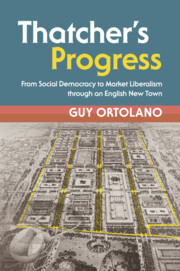4 - Community
Published online by Cambridge University Press: 08 June 2019
Summary
Chapter 4, “Community,” examines competing approaches to community development. Since the 1920s, planners had believed that spaces forged social ties; but from the 1960s, this approach was challenged by the view that communities came from people. Milton Keynes offered a showcase for this “people-ist” conviction. Its social development department sought to forestall the “new town blues,” by stimulating residents’ efforts to build communities. These initiatives nourished a rich associational life centered around women and their families. But when some estates encountered problems with their housing, their inhabitants demanded redress, while other residents later organized to challenge the corporation politically. Facing these more assertive forms of community, figures within the corporation reconsidered their commitment to social development, even questioning whether an entity called the “people” existed at all. From one perspective, this retreat affirms the triumph of an individualism associated with market liberalism – but from the residents’ perspective, this same episode becomes a story of social democratic subjects, mindful of their rights and collectively asserting them.
Keywords
- Type
- Chapter
- Information
- Thatcher's ProgressFrom Social Democracy to Market Liberalism through an English New Town, pp. 143 - 183Publisher: Cambridge University PressPrint publication year: 2019

